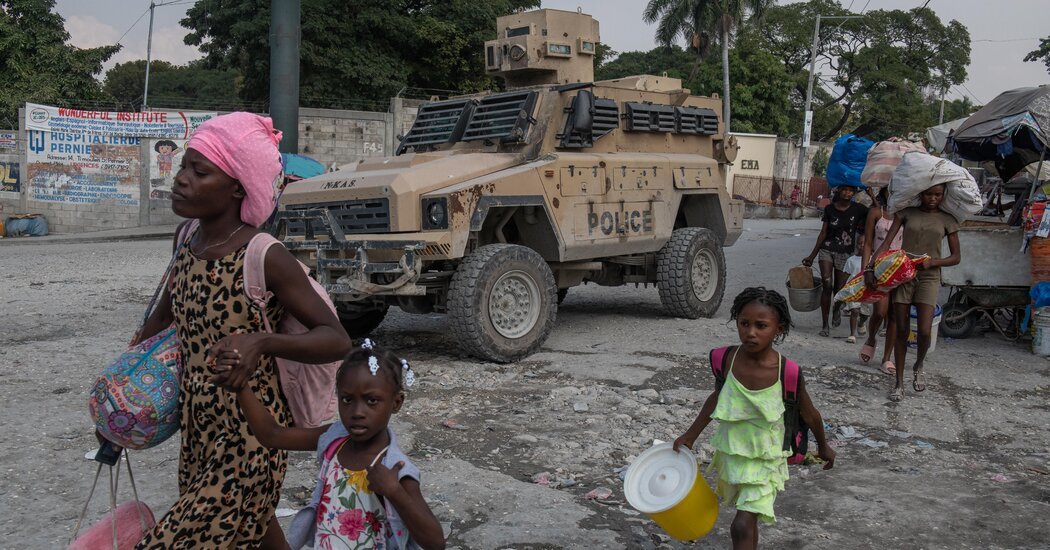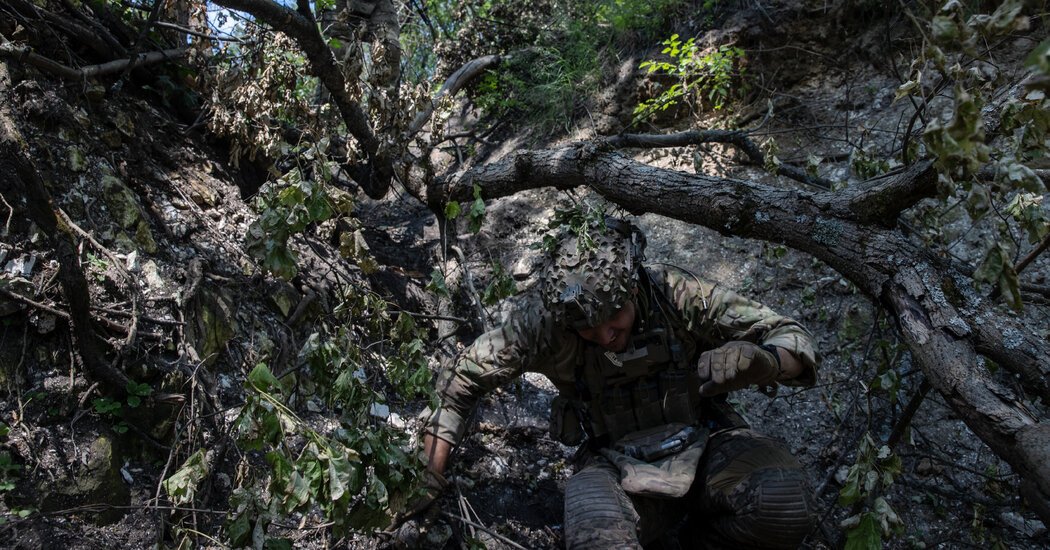Kenya’s government will not await a court of appeal ruling before deploying its forces to Haiti, a senior government official said, further underscoring the government’s determination to move ahead with the proposed multinational force aimed at bringing stability to the gang-ravaged Caribbean nation.
Abraham Korir Sing’Oei, the principal secretary at the Ministry of Foreign Affairs, told The New York Times in an interview that Kenya and Haiti were working to finalize a bilateral agreement in the next two weeks and that, once in place, Kenyan forces would immediately deploy.
The declaration from Mr. Sing’Oei comes just a week after the country’s High Court blocked the deployment of 1,000 police officers, saying it could go ahead only if there was a “reciprocal arrangement” detailing the framework under which Kenyan forces can operate in Haiti.
Kenya’s government appealed the decision.
Mr. Sing’Oei said the High Court provided a legal pathway for the deployment, namely the bilateral reciprocal arrangement with Haiti. But he said the government was appealing the decision to a higher court anyway to seek clarifications on some findings the government “finds problematic.”
Still, he added, “the deployment does not have to await the conclusion of this appeal.”
He did not give a specific timeline for when the officers would depart for Haiti.
President William Ruto of Kenya has remained bullish on the plan, telling Reuters last week that the mission would go ahead despite the court’s ruling.
Observers say Mr. Ruto, who came to power in 2022, is adamant about going through with the plan in order to lift his profile as a global statesman and a Pan-African leader. He has also cast the Haiti plan as “a mission for humanity,” which would help a nation whose people are part of the African diaspora.
His government’s decision to bypass the courts would likely open another legal challenge from activists and human rights groups who have denounced the deployment plan as unconstitutional. It would also open another door of controversy for Mr. Ruto, whose government faces rising criticism for the East African nation’s mounting economic challenges. By defying the courts, Mr. Ruto will also be amping up his showdown with the judiciary, which he recently censured for impeding his administration’s plans.
One of those plans was the Haiti mission.
Last July, the government announced that it would lead a multinational force to bring order to Haiti, where gangs have overtaken entire neighborhoods and some 5,000 people were killed in 2023. The United Nations Security Council approved the mission in October and the Biden administration pledged to finance the mission with $200 million.
But the operation quickly became a political wedge issue in Kenya, denounced by activists and opposition leaders. Detractors said the plan contravened Kenya’s constitution because it would place officers in unnecessary danger and was carried out without broader public dialogue or the direct authorization of the government agencies tasked with national security.
Human rights groups also pointed out the dismal record of Kenya’s police, who have been accused of killing more than 100 people last year and shooting at protesters during anti-government demonstrations. Many also questioned how Kenyan forces would protect civilians in Haiti even as they struggled to stem the threat of bandits and the terrorist group Al Shabab within their own borders.
Following a parliamentary session in November, lawmakers passed a motion allowing for the deployment of forces, but a High Court judge blocked the plan in late January, throwing its future into disarray.
Despite the court verdict, the United States reaffirmed its support for the mission last month.
In a statement, the State Department acknowledged the Kenyan court’s ruling and the government’s intent to challenge it and called for the international community to “respond to the unprecedented levels of gang violence and destabilizing forces preying upon the Haitian people.”
But even as Kenyan officials begin working out a “reciprocal arrangement,” lawyers and activists have begun looking into what that would entail.
Mr. Sing’Oei said the agreement would follow the National Police Service Act, which stipulates that the president can designate a country as a “reciprocating nation” once they are satisfied that they have corresponding laws to those governing Kenyan forces abroad.
Observers say that Mr. Ruto now faces pressure to show that he carefully assessed all necessary conditions before making such a decision if he is to avoid more court challenges.
“When the law gives that power to anyone — in our case, the president — it is only prudent that the decision not be based on whim, diplomatic populism or even sheer egalitarianism,” Waikwa Wanyoike, a constitutional lawyer, wrote in a Sunday column in Kenya’s Daily Nation newspaper. “Instead, it must be taken based on prudence and objectivity — with sufficient justification candidly offered.”
David C. Adams contributed reporting from Miami.





